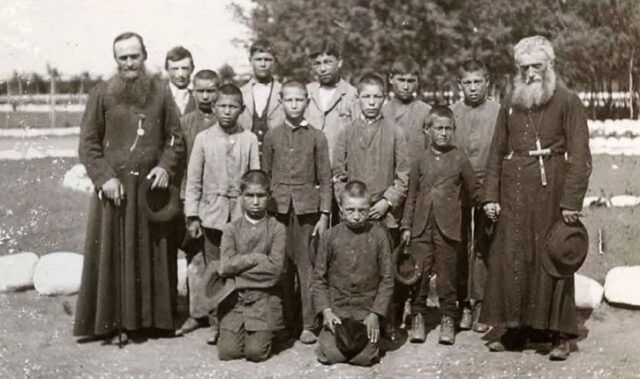
September 30th, marks both a terrible history and hopeful future.
On the one hand, it’s a painful day, one that calls on us to remember the damage done to indigenous communities throughout a long saga of colonialism in Canada. On the other, there is the hope that if we recognize and work to address this damage, we can spare future generations the indignities of the past.
So, what does that mean, in practice?
That means recognizing that it will take all of us, working together as a community, to accomplish that hope.
That means that – even if we’re just a humble dispensary – on this day, we highlight the fact that approximately 150,000 Indigenous children were torn from their homes and communities and forced to attend one of 139 residential schools across Canada.
That means that we wear orange t-shirts, to show solidarity with those who suffered under a policy of cultural annihilation for over a century, like Phyllis Webstad, who had the shiny orange shirt given to her by her grandmother ripped from her on her first day of school.
“The color orange has always reminded me of that and how my feelings didn’t matter, how no one cared and how I felt like I was worth nothing. All of us little children were crying and no one cared,” Phyllis writes on the Orange Shirt Day website.
Stories just like that of Phyllis remind us that, while we may wish to forget, the stated goal of the Residential School program was, according to Bishop Vital Grandin who ran one such school, to “instill in them a pronounced distaste for native life so that they will be humiliated when reminded of their origin.”
It’s a nauseous sentiment, one that demands of us action. To that end, Sunrise will be donating $500.00 to $1,500.00 to the Indian Residential School Survivors Society (IRSSS), a provincial organization with a twenty-year history of providing services to the survivors of the Indian Residential School System. Although they work as a holistic organization, their main function is to assist survivors with the litigation processes related to residential schools and redress the judicial imbalance of Corrections Canada Services towards indigenous communities.
As inhabitants in the ancestral territories of the xʷməθkʷəy̓əm (Musqueam), Sḵ wx̱ú7mesh (Squamish), and səlilwətaɬ (Tsleil-Waututh) peoples, we want to be part of the solution. Up against the enormity of the problem our actions can seem small, but collectively we can make an impact.
******* Special Thanks to Vince Biancardi Da Camara who authored this post on behalf of Sunrise Cannabis **********



